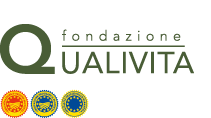Newsletter
Tutte le principali informazioni sui prodotti agroalimentari e vitivinicoli DOP IGP STG italiani e sulle indicazioni geografiche direttamente nella tua casella di posta elettronica. Leggi privacy policy
Fondazione Qualivita
Sede Via Fontebranda 69
53100 Siena (Si) Italy
Tel. +39 0577 1503049
Whatsapp. +39 375 6797337
Contattaci via E-Mail
Contattaci via PEC

Progetti Qualivita
- Qualigeo.eu
Banca dati dei prodotti europei DOP IGP - Atlante Qualivita
La pubblicazione dei prodotti DOP IGP STG - Osservatorio Qualivita
Dati ed analisi del settore DOP IGP - Rapporto Ismea Qualivita
Indagine economica sui prodotti DOP IGP - Passaporto Digitale
Sistema di anticontraffazione e tracciabilità per le dop IGP
Organizzazioni di settore
- Origin Italia
Associazione Italiana Consorzi IG - Federdoc
Confederazione Nazionale dei Consorzi volontari per la tutela delle denominazioni di origine - Masaf
Ministero dell’agricoltura, della sovranità alimentare e delle foreste - Ismea
Istituto di Servizi per il Mercato Agricolo Alimentare




